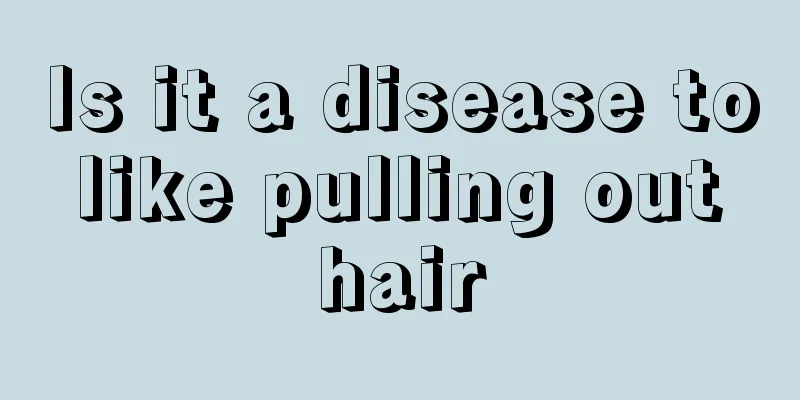Can I have a nose job if I have rhinitis?

|
Rhinitis patients are troubled by nasal discomfort all day long, especially when the seasons change, their condition will worsen, which can be said to be the most unbearable period of time for them. Moreover, rhinitis is difficult to cure, and the only way to alleviate the symptoms of rhinitis is to control your daily living habits. In modern society, rhinoplasty surgery has been recognized by more and more people, but can people with rhinitis undergo rhinoplasty surgery? If you have rhinitis and want to have a nose job, it is theoretically possible, but whether the surgery can really be performed depends on the doctor's arrangements and suggestions during the face-to-face consultation. You must first know whether you have acute rhinitis or chronic rhinitis. If it is acute rhinitis, rhinoplasty surgery should be performed after the rhinitis is cured. If it is chronic rhinitis, surgery should be performed when the symptoms of rhinitis are relatively mild and stable. The lesions of rhinitis are mainly inside the nasal mucosa, so there is no conflict between it and rhinoplasty surgery. However, people with severe rhinitis symptoms are not suitable for immediate surgery. During the recovery period after rhinoplasty surgery, you should not knead your nose. For people with rhinitis, it is okay to wipe the nose with a cotton swab and blow the nose gently. Therefore, people with rhinitis can also undergo rhinoplasty, but they should pay special attention to the control of rhinitis and post-operative care. Generally, doctors will recommend that you undergo rhinoplasty after the rhinitis is cured or the condition is stable to ensure the effectiveness of the surgery and the safety of the patient. Rhinitis treatment 1. Etiological treatment: Identify systemic and local causes, and promptly treat systemic chronic diseases, sinusitis, adjacent infected lesions, and nasal septum deviation, etc. Improve living and working environment, exercise, and enhance body resistance. 2. Local treatment (1) Intranasal glucocorticoids are the first choice for chronic rhinitis, with good anti-inflammatory effects and ultimately a decongestive effect. It can be used for a longer period of time as needed, with good efficacy and safety. (2) Nasal cleaning: For those with more or thicker nasal secretions, the nasal cavity can be cleaned with normal saline to remove nasal secretions and improve nasal ventilation. (3) Oxymetazoline hydrochloride spray can be used as an intranasal decongestant, and continuous use should not exceed 7 days. If you need to continue using it, you need to stop for 3 to 5 days. Long-term use of 0.5% to 1% ephedrine nasal drops can damage the ciliary structure of the nasal mucosa and should be avoided as much as possible. If it is necessary to use it, use it in small amounts intermittently. The use of nasal drops is prohibited because it has been shown to cause drug-induced rhinitis. (4) Other treatments include blockade therapy, acupuncture therapy, etc., which are rarely used. |
<<: Can moxibustion cure body odor?
>>: Is prosthetic rhinoplasty dangerous?
Recommend
Can drinking soy milk every day remove spots?
It is human nature to love beauty, so it is very ...
Can warts on the soles of feet heal themselves?
If you find that you have warts on the soles of y...
How to treat chest pain
Chest bruises are a symptom that has a very serio...
How to wash off oil stains on clothes
In daily life, we often see our children accident...
Is systemic lupus erythematosus contagious? What is the pathogenesis?
Systemic lupus erythematosus is an autoimmune dis...
Do you know these wonderful uses of eggs?
In daily life, eggs are indispensable almost ever...
Uses of egg powder
Everyone is familiar with eggs. Eggs are a relati...
What should I do if my sigmoid colon is too long?
Many people do not know how to treat prolonged si...
What are the specific symptoms of early lung cancer? There are six specific symptoms of early lung cancer
Clinically, most patients diagnosed with lung can...
What are the effects and functions of Maca?
Maca is actually quite beneficial to human health...
How to effectively treat oral mucosal ulcers
Oral ulcers are superficial ulcers on the oral mu...
What causes blepharitis
Blepharitis is actually what people often call st...
The correct method of healing with the power of mind
Few people have heard of healing through the powe...
The main risk factors for prostate cancer are as follows
In life, prostate cancer has affected the normal ...
How should intestinal tuberculosis be examined?
As a disease of the digestive system, intestinal ...









